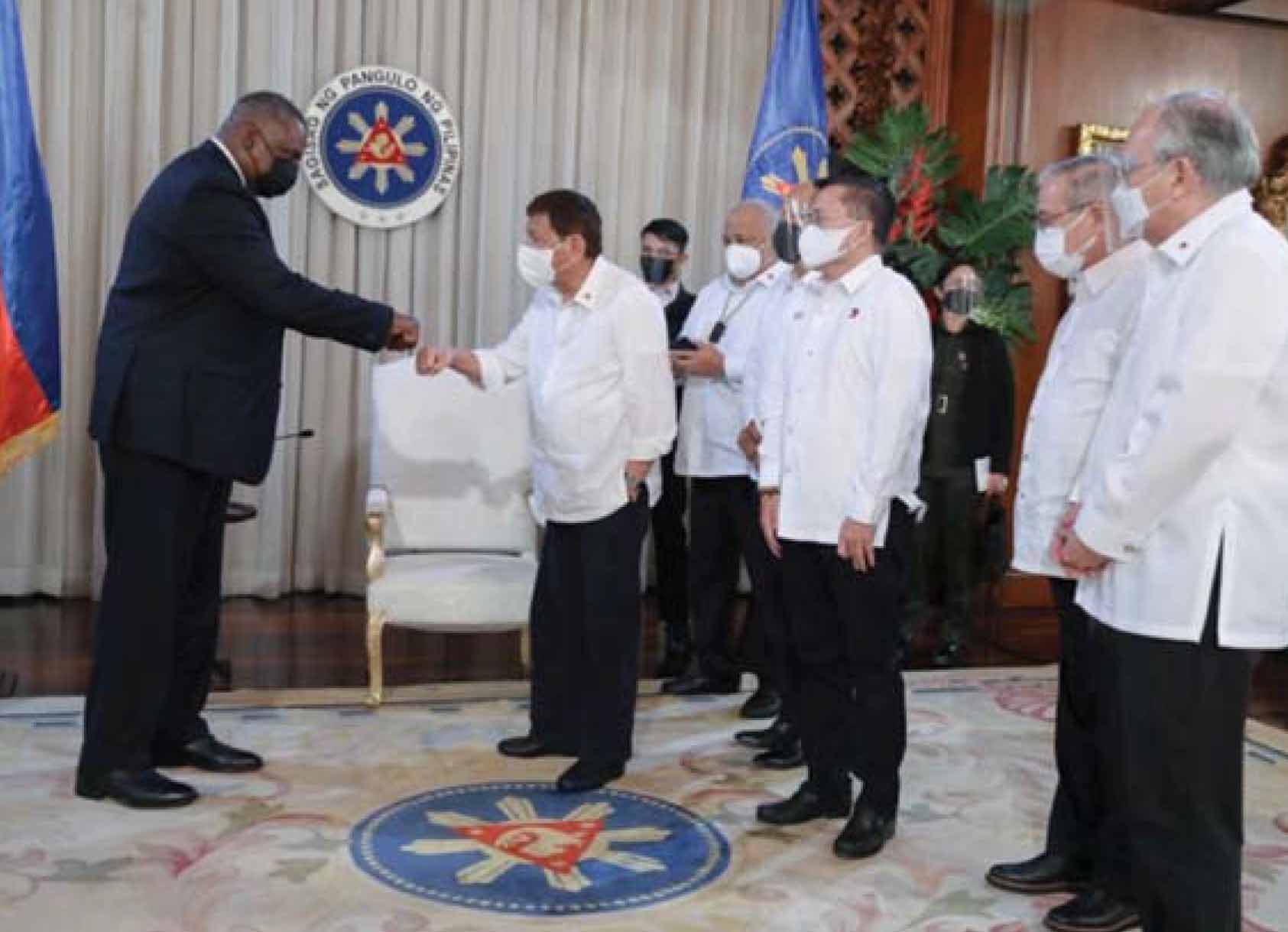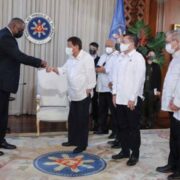
AFTER moves to cancel the Visiting Forces Agreement (VFA), Philippine President Rodrigo Duterte has backtracked from his decision and will continue to uphold the defense pact with the United States.
Presidential Spokesperson Harry Roque on Friday, July 30, announced the reversal, saying the chief executive is seeking to sustain the country’s “strategic core interests.”
“PRRD’s (President Rodrigo Roa Duterte) decision to recall the abrogation of VFA is based on upholding PH strategic core interests, the clear definition of PH-U.S. alliance as one between sovereign equals, and clarity of U.S. position on its obligations and commitments under MDT (Mutual Defense Treaty),” he said in a statement.
“The Philippines will, however, continue to engage other countries for partnerships that work, based on our core national interests,” the spokesman added.
In February 2020, the Philippines sent the U.S. a notice terminating the VFA reportedly after the U.S. canceled Senator Ronald “Bato” Dela Rosa’s visa.
The abrogation was later suspended in June “in light of political and other developments in the region,” and the suspension was extended in November for another six months to enable the Philippines and the U.S. to find a more enhanced, mutually beneficial, mutually agreeable, and more effective and lasting arrangement on how to move forward in their mutual defense.
Last month, Duterte extended the abrogation for another six months “while he studies and both sides further address his concerns regarding particular aspects of the agreement,” according to Philippine Foreign Affairs Secretary Teodoro Locsin Jr.
‘In full force’
On the same day, the country’s Defense Secretary Delfin Lorenzana said that Duterte decided to keep the VFA after meeting with U.S. Defense Secretary Lloyd Austin III at Malacañang Palace on Thursday, July 29.
“Last night after the meeting between Secretary Austin and President, after Secretary Austin left Malacanang, the President decided to recall or retract the termination letter for the VFA,” he said in a joint press conference with Austin.
“The VFA is in full force again, there is no termination letter. We are back on track, Mr. Secretary to plan for future exercises under the VFA, thank you,” he added.
Lorenzana also said that no changes had been made to the original documents, but a side agreement was being “worked out.”
“I think that’s one of the side agreements that are being worked out by both sides and it will not affect the original document, but it will just be an adjunct or an additional agreement between the two countries,” he said.
Meanwhile, Locsin, in a separate statement, said that he already handed Austin the diplomatic note recalling the abrogation of the VFA.
“The alliance has stayed strong and overcome challenges. It is vital to maintaining stability in the Asia-Pacific region. All the protagonists in the region, without a single exception, see a strong US presence as imperative to peace and stability in Southeast Asia,” he added.
US welcomes PH move
For his part, Austin thanked Duterte for deciding to recall the termination of the defense agreement.
“We thank the President for his decision to fully restore the Visiting Forces Agreement,” the American defense chief said.
“I am privileged to be here during my first visit to the Philippines as Secretary of Defense and I’m glad to have the opportunity to reaffirm our shared commitment to the U.S.-Philippines alliance,” he added.
Austin also assured that the two nations’ strong alliance will “remain vital to the security, stability and prosperity of the Indo-Pacific.”
“A fully restored VFA will help us achieve that goal together. I’m especially grateful for our long-standing U.S.-Philippine Visiting Forces Agreement which enabled us to respond swiftly and seamlessly to disasters,” he added.
Likewise, the U.S. Embassy in Manila welcomed the new development, noting the pact’s importance to the two countries’ security cooperation.
“The United States welcomes President Rodrigo Duterte’s decision to recall the abrogation of the VFA. We strongly believe that the VFA, and the broader alliance that the VFA enables, strengthens not only the security of our two nations but also the rules-based order that benefits all nations in the Indo-Pacific,” it said in a statement. n





